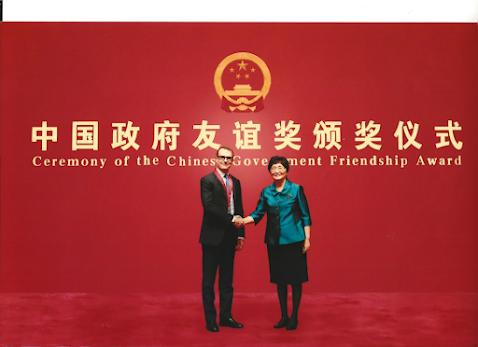Proposals Submitted by "Clean Internet for Conophytum" in Response to the "Notice of the General Administration of Customs on Handling Matters Related to Voluntary Disclosure of Violations" (Draft)
On June 29, 2023, the General Administration of Customs of China released the "Notice of the General Administration of Customs on Handling Matters Related to Voluntary Disclosure of Violations" (Draft for Soliciting Opinions). It is worth noting that this release marks the first time the General Administration of Customs has sought public opinions on "voluntary disclosure notices." In light of this, the "Clean Internet for Conophytum" group actively responded and, after thorough research, submitted the following three proposals on July 9, 2023:
Firstly, we suggest establishing a mechanism for accountability. In cases involving endangered wildlife, if individuals attempting to deceive customs inspections through means such as false species names or origins are discovered within the country, a retrospective investigation should be conducted, and corresponding legal responsibilities should be pursued.
Secondly, concerning the import management of non-endangered wildlife, we propose that customs policies should introduce quantity limits rather than blindly relaxing regulations. This is because some wild plants and animals have been included in the Appendix of the Convention on International Trade in Endangered Species of Wild Fauna and Flora (CITES) due to extensive trade-induced exploitation and damage to their natural habitats. In fact, these plants and animals have already suffered significant harm to their population and habitats due to illegal transnational trade in the years before their inclusion in the CITES Appendix. Based on the information we have, the entry of Conophytum plants from South Africa into the country in recent years serves as a typical example. As an important "gateway," customs has the responsibility to contribute to the "building of a community with a shared future for all life on Earth."
Thirdly, we recommend establishing a reporting reward mechanism. Encouraging citizens to provide relevant information is vital for effectively combating violations of customs regulations and the illegal transportation of endangered plants and animals. Customs should establish a reporting reward mechanism that provides certain incentives or rewards to individuals who report such violations. This mechanism can motivate more people to participate in combating illegal activities, increasing the enthusiasm and initiative for reporting. Once the mechanism is clearly stipulated, it can also provide a safe and protected environment for citizens to provide information, without having to worry about potential retaliation or consequences. Moreover, the reporting reward mechanism can strengthen customs' enforcement capabilities by providing more intelligence and evidence, thereby enhancing the effectiveness of combating illegal activities.
The aforementioned proposals are put forward by the "Clean Internet for Conophytum" Initiative, and we hope that these suggestions can be helpful for the improvement of the Draft, contributing to the building of a community with a shared future for all life on Earth.
(This article is the 96th post in the #CleanInternetforConophytum series. The translated text is for information only.)

Compiled by: chaubi
Edited by: 绿茵
Contact: v10@cbcgdf.org; +8617319454776

Contribution
Do you know? CBCGDF is a non-profit organization. We rely on crowd-funding and donations. You have the opportunity to help us to advance biodiversity conservation. Donate TODAY to power up the movement to make it a better world for all life.
https://www.paypal.me/CBCGDFChina
http://www.cbcgdf.org/English/ConfirmDonaTion/0.html
[Original Notice Link]
http://wuhan.customs.gov.cn/customs/302452/302329/zjz/5128347/index.html



Comments
Post a Comment